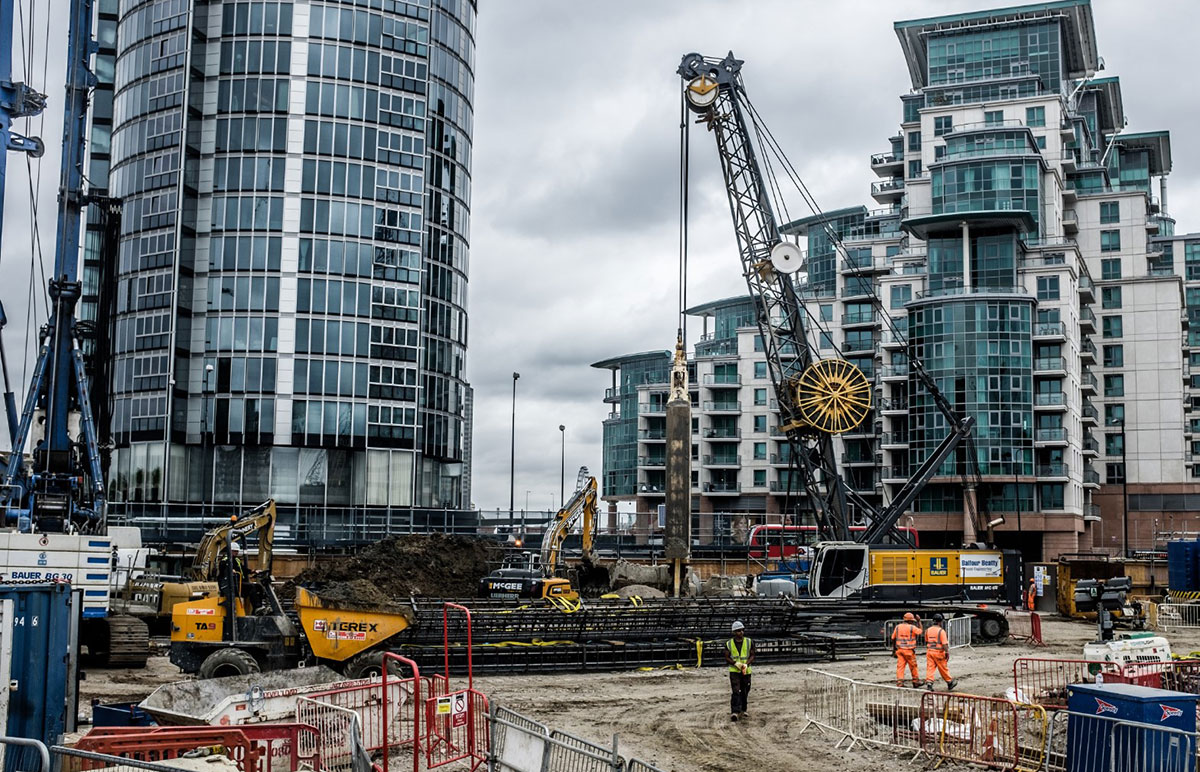The Single Strategy To Use For Geotheta
The Single Strategy To Use For Geotheta
Blog Article
Some Known Incorrect Statements About Geotheta
Table of ContentsThe Ultimate Guide To GeothetaGeotheta for BeginnersSome Known Factual Statements About Geotheta Top Guidelines Of GeothetaA Biased View of Geotheta

They perform site investigations, collect samples, perform research laboratory examinations, and evaluate information to assess the suitability of the ground for building projects - Tailings Engineer. Based on their searchings for, geotechnical designers provide referrals for foundation design, incline security, retaining structures, and reduction of geotechnical risks. They team up with various other professionals, such as designers, structural designers, and building and construction teams, to ensure that geotechnical considerations are integrated right into the total task design and execution
By examining the habits and residential or commercial properties of soil and rock, they can recognize potential geotechnical risks such as landslides, soil settlement, or incline instability. Their proficiency assists protect against failures or mishaps that could endanger lives and building. Here are some comprehensive tasks and duties of a geotechnical engineer: Website Examination: Geotechnical designers conduct site examinations to collect information on subsurface conditions.
They translate the information to recognize the residential properties and behavior of the dirt and rock, including their strength, leaks in the structure, compaction characteristics, and groundwater problems. Geotechnical Analysis and Style: Geotechnical designers evaluate the information gathered throughout site investigations to assess the security and viability of the site for building projects. They carry out geotechnical estimations and modeling to review aspects such as bearing capability, negotiation, incline security, lateral earth stress, and groundwater flow.
Geotheta Things To Know Before You Get This
Structure Style: Geotechnical engineers play a vital role in creating foundations that can safely support the intended framework. They analyze the soil problems and load demands to determine the suitable structure type, such as shallow structures (e.g., footings), deep foundations (e.g (https://packersmovers.activeboard.com/t67151553/how-to-connect-canon-mg3620-printer-to-computer/?ts=1722609175&direction=prev&page=last#lastPostAnchor)., stacks), or specialized techniques like soil improvement. They think about variables such as settlement limitations, birthing capability, and soil-structure communication to establish optimum foundation styles
They evaluate construction strategies, screen website activities, and perform area assessments to validate that the design suggestions are adhered to. If unforeseen geotechnical concerns develop, they evaluate the situation and offer suggestions for remediation or changes to the layout. Threat Analysis and Mitigation: Geotechnical designers analyze geotechnical dangers and risks connected with the task site, such as landslides, liquefaction, or soil disintegration.

Collaboration and Communication: Geotechnical engineers work carefully with various other professionals associated with a task, such as designers, architectural engineers, and construction groups. Efficient interaction and cooperation are vital to incorporate geotechnical considerations into the total task layout and construction procedure. Geotechnical engineers offer technological competence, response questions, and ensure that geotechnical requirements are fulfilled.
Excitement About Geotheta
Below are some kinds of geotechnical engineers: Structure Engineer: Foundation engineers specialize in creating and evaluating structures for frameworks. They assess the dirt conditions, load needs, and website features to identify one of the most appropriate structure kind and design, such as shallow foundations, deep structures, or specialized methods like heap foundations.
They review the variables affecting slope stability, such as dirt residential properties, groundwater problems, and incline geometry, and develop techniques to stop slope failings and minimize dangers. Quake Engineer: Earthquake engineers specialize in analyzing and creating structures to endure seismic forces. They assess the seismic danger of a website, assess soil liquefaction potential, and develop seismic layout requirements to make sure the security and resilience of frameworks during earthquakes.
They do area testing, gather samples, and assess the collected information to characterize the soil homes, geologic developments, and groundwater problems at a site. Geotechnical Instrumentation Engineer: Geotechnical instrumentation designers concentrate on monitoring and measuring the behavior of dirt, rock, and structures. They install and maintain instrumentation systems that keep an eye on variables such as dirt settlement, groundwater levels, incline activities, and structural displacements to evaluate efficiency and offer very early warnings of potential problems.
Facts About Geotheta Revealed
They perform examinations such as triaxial tests, consolidation examinations, straight shear tests, and permeability examinations to collect data for geotechnical analysis and design. Geosynthetics Designer: Geosynthetics engineers specialize in the layout and application of geosynthetic products, such as geotextiles, geogrids, and geomembranes. They make use of these products to boost soil security, enhance inclines, provide water drainage services, and control disintegration.
They have a tendency to be investigatory people, which means they're intellectual, introspective, and analytical. They are curious, systematic, reasonable, logical, and sensible. Some of them are additionally blog here social, implying they're kind, charitable, participating, client, caring, valuable, empathetic, sensible, and pleasant - Consulting Engineers.
In the workplace setting, geotechnical engineers utilize specialized software program tools to perform estimations, develop styles, and analyze information. They prepare reports, evaluation project specifications, connect with clients and staff member, and coordinate job tasks. The workplace setup offers a helpful atmosphere for research study, evaluation, and cooperation with other experts associated with the project.
Geotheta Can Be Fun For Everyone
They often see task sites to conduct site investigations, evaluate geotechnical problems, and collect data for analysis. These check outs include traveling to various areas, often in remote or challenging terrains. Geotechnical designers may perform soil sampling, conduct tests, and display building and construction activities to make sure that the geotechnical facets of the task are being executed appropriately.
Geotechnical designers additionally function in specialized geotechnical research laboratories. Geotechnical lab designers function thoroughly in these settings, taking care of testing equipment, running instruments, and tape-recording data.
Report this page